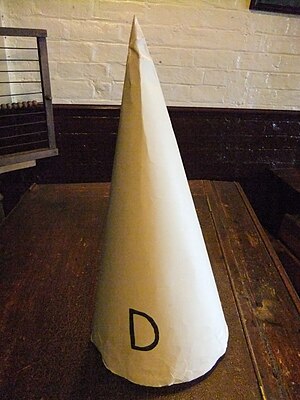 To argue for a nonhistorical Jesus has been ignorantly compared with arguing “Creation Science” (“Intelligent Design”).
To argue for a nonhistorical Jesus has been ignorantly compared with arguing “Creation Science” (“Intelligent Design”).
So it is interesting to read the following from one of the foremost public critics of Creation Science:
Of course, there are scholars who are more openly secular humanist, and are willing to depart from the religionism that permeates historical Jesus studies. One example is Robert M. Price, a fellow of the Jesus Seminar, who provides a devastating critique of historical Jesus studies in Deconstructing Jesus — and we share many of his conclusions. Earl Doherty’s The Jesus Puzzle outlines a plausible theory for a completely mythical Jesus. Burton Mack and Gerd Ludemann also have done much to erode our confidence in the more religionist versions of historical Jesus research. Our purpose is not to slight them, but rather to show that the predominant schools of historical Jesus research in academia have still not superseded Reimarus, who had a perfectly reasonable hypothesis centered on empirico-rationalism.
p. 197, The End of Biblical Studies (2007) by Hector Avalos.
And who is this Avalos?
From Wikipedia, Avalos “is also one of the most prominent secular humanist biblical scholars today.”
As for his credentials in detecting genuine studies from fraudulent ones like Creation Science, again from Wikipedia:
“Avalos has become an internationally-recognized critic of Intelligent Design, and he is often linked with Dr. Guillermo Gonzalez, the advocate of Intelligent Design who was denied tenure at Iowa State University in 2007. Avalos co-authored a statement against Intelligent Design in 2005, which was eventually signed by over 130 faculty members at Iowa State University. That faculty statement became a model for other statements at the University of Northern Iowa and at the University of Iowa. Gonzalez and Avalos are both featured in the movie Expelled: No Intelligence Allowed (2008).”
And from another:
Twentieth-century scholarship, with its faith in history, assumed a historical Jesus as its starting point. It shared Schweitzer’s personal dilemma: a choice between a Jesus who fits modern visions of Christianity and Mark’s failed prophet. But they always assumed there was a historical Jesus to describe.
p. 7, The Messiah Myth (2005) by Thomas L. Thompson
So who is this Thompson?
Also from Wikipedia, Thomas L. Thompson was a theology professor at the University of Copenhagen from 1993 to 2009.
[He] has held positions at the University of Dayton (Instructor in theology, 1964 – 65), University of Detroit (Assistant Professor: Old Testament, 1967 – 69), Tübingen Atlas of the Near East (research associate, 1969 – 76), École Biblique (visiting professor, 1985 – 86), Lawrence University (visiting associate professor, 1988 – 89), and Marquette University (associate professor, 1989 – 93), and was professor of theology at the University of Copenhagen from 1993-2009. He was named a National Endowment for the Humanities Fellow in 1988. He is general editor for the Equinox Press monograph series Copenhagen International Seminar and associate editor of the Scandinavian Journal for the Old Testament, and serves on the editorial boards of the journals Holy Land Studies and Dansk Teologisk Tidsskrift.
He has written 14 books, one of which, The Bible in History, is widely used as a set-text in undergraduate courses in biblical studies.
And one more for luck:
Seen from a purely logical viewpoint, whether Jesus existed or did not exist must always remain hypothetical. . . . Modern Christianity must always reckon with the possibility of having to abandon the historical figure of Jesus.
p.402 of The Quest of the Historical Jesus, 2001, by Albert Schweitzer.
Who’s Schweitzer?
Added 14 Feb, 2010:
I had thought that the heading of this post was sufficient to contextualize the quotations above. (I certainly thought it was enough not to give the biographical detail on him as I gave on the others — I assumed my concluding quip was enough to set the tone and context.) But I have recently learned that one person (here) has interpreted my reference to Schweitzer as an attempt by me to get others to think that Schweitzer is a mythicist sympathizer. That is, of course, ridiculous. I took for granted that readers who know anything about Schweitzer would know his position on this. This was, of course, my point — that even one who argued comprehensively against mythicist arguments should concede certain facts about the argument that enable it to endure.
To repeat part of my response on that blog here:
Michael Shermer is able to quite comfortably pull apart Creationist arguments in a civil, courteous and professional manner and tone. I have demonstrated it is quite possible to pull apart in an informative and clear way something as “fringe” as Atlantis theories.
It is perhaps sadly instructive that quite a number of biblical scholars appear to find such processes beyond them when confronted with mythicist arguments, and they feel a need to resort to ridicule and misrepresentation and insult.
Albert Schweitzer — and this is a key point of my references to him — would not be impressed.
You are public intellectuals and I would consider that you have a responsibility to your publics to give them more than examples of prejudice and uncivil responses when faced with a radical difference of view.
Like this:
Like Loading...


